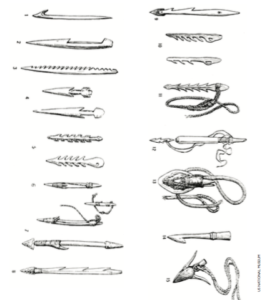FRIDAY, 7 JULY 2017
We belong to a remarkably successful species. By comparison, our closest living relatives, chimpanzees and bonobos, never experienced a population boom or geographical sprawl on the scale of Homo sapiens. The key to our curious reproductive overdrive and environmental in delity is our place at the bottom of the Scala Naturae, if it were ordered by degree of ecological specialisation. In other words, we have become evolutionarily successful because we are nature’s greatest anti-experts.
Biologists generally recognise a spectrum of ecological strategies. These range from specialists, who are experts at extracting energy within a particular niche (like koalas), to generalists, whose extractive repertoire is much more varied (like raccoons). Both strategies make sense: specialists fulfil a specific niche and exploit resources within it more efficiently, but are very vulnerable to extinction when environments change or become fragmented. Generalists face more competition since they are not the only ones exploiting a given resource, but they are flexible and can adapt more easily to changes in resource distribution.
If a generalist strategy is favoured by selection, different roads might lead to Rome. An omnivorous diet, like that of chimpanzees, might suffice. Or a species might develop physical adaptations to survive in wide-ranging environments, as tardigrades can – these tiny invertebrates survive in hot springs, under ice, and even in outer space. However, those roads to generalism are purely physiological. Humans are ecologically extraordinary because we took the road less travelled: a largely non-physiological one. In fact, our generalism is based on extreme behavioural flexibility, stored and transmitted in human culture.

Humans learnt to exploit resources in new environments more quickly than other animals by consciously tailoring their hunting or gathering strategies to their surroundings. Even within niches, we constantly adapted to changing conditions.
Dr. Alex Wilshaw, from Cambridge’s Leverhulme Centre for Human Evolutionary Studies, is studying diversity in an unprecedentedly large collection of bone harpoons made by early modern humans in on the shores of Lake Turkana. He believes some differences in harpoon size and shape are attributable to specialised hunting of sh species, some of which reached up to two metres in length. The diversity of the collection, he says, likely reflects intentional flexibility within hunting kits.
But early human pioneers could also invade foreign environments on far shorter timescales than other animals, because unlike them, we did not have to spend many generations genetically adapting to stressful habitats. As an example of this, it is generally accepted that we colonised Europe only after we had mastered fire and had begun actively hunting.
Cambridge’s Dr. Jay Stock has argued that it was our species’ phenotypic plasticity (environmentally- induced changes in phenotype, including behaviour) that allowed African apes to survive extreme cold without committing to a specialist cold-adapted physiology. Our behavioural flexibility buffered our genome from selective pressures also faced by other animals, which solved the problem genetically. Eurasian woolly mammoths and African elephants, species adapted to extreme cold and arid heat, respectively, arose from a common ancestor following population migrations. Humans, on the other hand, did not undergo such genetic changes as we spread across the globe. In fact, we have remained remarkably genetically unified. Chimpanzees and gorillas are genetically more diverse than humans, for example, even though we occupy a far greater variety of environments than they do. The same goes for species less related to us, like gray wolves.
 Diversity in bone harpoon size and shape can be linked to differences in fish size. Credit: US National museum
Diversity in bone harpoon size and shape can be linked to differences in fish size. Credit: US National museumWe are, as a species, also exceptionally big-headed. Flexible culture relies on us processing information about the environment and being conscious of ourselves in this environment, necessitating an exceptionally large brain. In fact, we are the most encephalised creature in nature. In other words, our brains are, relative to our body size, the largest in the animal kingdom.
Our evolutionary success has been attributed to many factors - intelligence, culture, and high fertility, and so on - but these are consequences of a behaviour-based generalist ecological strategy. Generalism is not unique in the animal kingdom, but ours is a generalism on steroids. It buffers our genome from selection and has resulted in Homo sapiens successfully exploiting an exceptionally wide range of environments. You might say we have become experts at not being experts.
Banner image credit: Erik bij de Vaate
